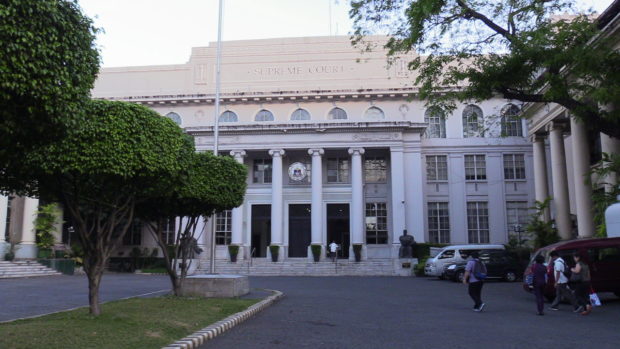SC denies reversal of tax case ruling vs celebrity doctor; guidelines out

MANILA, Philippines — The Supreme Court (SC) has issued guidelines for the prosecution of criminal actions for violating tax laws.
In its latest ruling, the SC said an assessment for deficiency taxes is not a prerequisite for collection of the taxpayer-accused’s civil liability for unpaid taxes in the criminal prosecution for tax law violations.
The latest guideline is contained in a 42-page unanimous decision written by Associate Justice Mario Lopez that denied the petition for review filed by celebrity-doctor Joel Mendez that seeks a reversal of the 2012 Court of Tax Appeals (CTA) ruling finding him guilty of violating Section 255 Tax Code, for failure to file an income tax return for the taxable year 2002 and for failure to supply correct information in the ITR for the taxable year 2003.
While he was found guilty by the Tax Court, it ruled that the Commissioner of Internal Revenue (CIR) first issue a final assessment for deficiency taxes before determining his civil liability.
The CTA’s en banc ruling prompted both Mendez and the Office of the Solicitor-General (OSG) to take the case to the Supreme Court.
In the consolidated ruling, the SC said Mendez’ arguments are “mere rehash” which were “raised and already considered by the CTA.”
On the other hand, it partly granted the OSG’s ruling while it laid down the following guidelines for the Bench and the Bar:
- When a criminal action for violation of the tax laws is filed, a prior assessment is not required. Neither is a final assessment a precondition to collection of delinquent taxes in the criminal tax case. The criminal action is deemed a collection case. The government must thus prove two things: (a) the guilt of the accused by proof beyond reasonable doubt; and (b) the accused’s civil liability for taxes by competent evidence (other than an assessment).
- If before the institution of the criminal action, the government filed (a) a civil suit for collection, or (b) an answer to the taxpayer’s petition for review before the CTA, the civil action or the resolution of the taxpayer’s petition for review shall be suspended before judgment on the merits until final judgment is rendered on the criminal action. However, before judgment on the merits is rendered on the civil action, it may be consolidated with the criminal action. In such a case, the judgment in the criminal action shall include a finding of the accused’s liability for unpaid taxes relative to the criminal case.
Applying the guidelines to the case of Mendez, the SC said since the prosecution filed a criminal case for tax violation against him, the civil action for collection of deficiency taxes is deemed instituted. Thus, a formal assessment issued by the CIR is not required for the imposition of civil liability for unpaid taxes.
The SC, in partly granting the petition by the OSG said that finding of deficiency taxes should have been done at the level of the CTA Division. Hence, the case must be remanded to the CTA Division to determine the civil liability of Mendez and resolve it with “reasonable dispatch.”